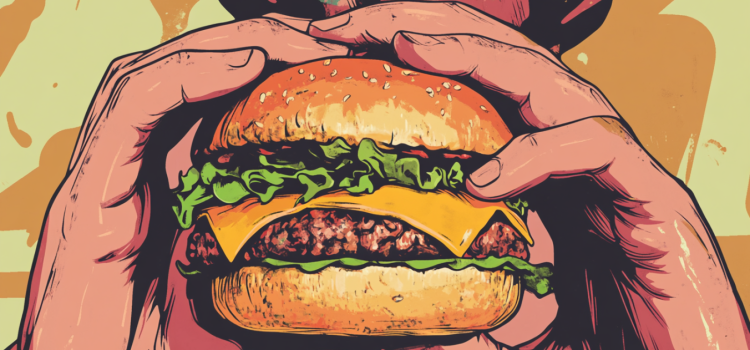
Can reducing your calorie intake extend your lifespan? How much should you be eating every day?
In Jellyfish Age Backwards, Nicklas Brendborg theorizes that calorie restriction and longevity are closely linked. While studies are still being done on this, there is some evidence pointing to a longer lifespan for those who eat less.
Continue reading to learn more about Brendborg’s studies.
Calorie Restriction for a Longer Life
In his book, Brendborg discusses calorie restriction and longevity. This essentially means dramatically reducing how much you eat.
He says that, based on various studies and observations, people who have cut their calorie intake by anywhere from around 10-25%—while still making sure to get all the nutrients they need—have shown remarkable health improvements. Some of the benefits include losing weight, reduced blood pressure, and improved immune responses.
However, by their very nature, such studies take a long time to conduct. Therefore, it’s too soon to say for sure whether calorie restriction ultimately leads to a longer lifespan in humans.
(Shortform note: Part of the reason why calorie restriction—even severe calorie restriction—can be beneficial is that it addresses a modern-day problem: People have evolved to eat too much and too unhealthily. This is because fatty and sugary foods—valuable sources of calories—were rare for our ancestors, so humans evolved to eat all the fat and sugar they could find. However, those behaviors are a serious mismatch with the modern world where fat and sugar are readily available—now, if we eat like our genes compel us to, we’re likely to give ourselves health problems like obesity, high blood pressure, and diabetes.)
While there isn’t yet a consensus about whether calorie restriction makes you live longer, Brendborg says that researchers do have theories about the health improvements they’ve recorded so far. Calorie restriction appears to trigger various cellular maintenance mechanisms, most notably autophagy.
Autophagy, which literally means “self-eating,” is the body’s way of breaking down damaged or mutated cells and recycling their components. This is not just an efficient use of resources, it’s also a way for the body to repair itself. This cellular recycling process is sort of like repairing a machine by swapping out damaged components for new ones. Although autophagy happens naturally throughout your life, it declines as you get older. Promoting autophagy through calorie restriction (or other methods, as we’ll discuss) seems to counteract this decline, which may help you maintain healthier cells into old age.
(Shortform note: Another way calorie restriction may improve health is by boosting sirtuin activity. As David Sinclair explains in Lifespan, sirtuins are a group of enzymes that regulate gene expression (which genes are active and when). However, as we age, sirtuins stop performing their gene regulation duties as effectively—so genes that should be active are not, and vice versa. Researchers have found that fasting activates sirtuins, leading to numerous health benefits, including increased cancer-fighting abilities. Therefore, like autophagy, this is another cellular maintenance mechanism that you can force your body to engage through calorie restriction.)






